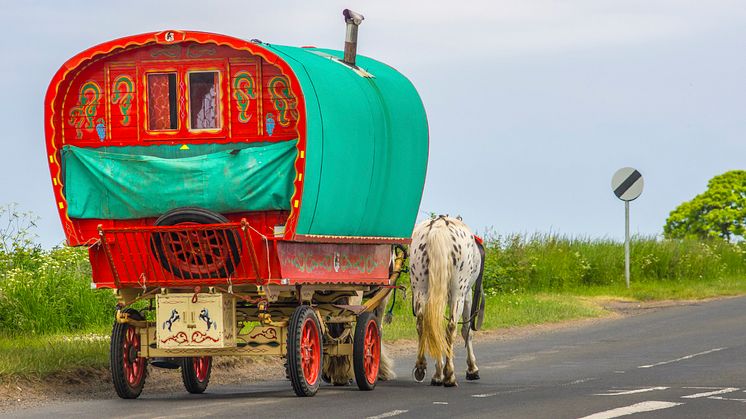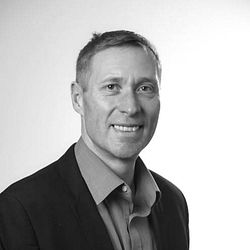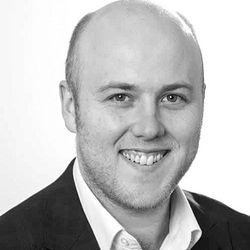
Press release -
Research aims to improve Travellers’ health
Health care services have a challenge in meeting the multiple and complex needs of Traveller communities according to new research published by Northumbria University, Newcastle.
Traveller communities, such as Romani Gypsies, boat dwellers and circus people, have enduring health inequalities due to their transient lifestyles. They tend to have low incomes, poor housing conditions and have little continuity with health care providers.
As such, Travellers are often found to have high ‘socioeconomic inequalities markers’ – meaning they are more likely to suffer from poor health, lower life expectancy and often require additional support. Statistics show that just 30% of Irish Travellers live beyond their 60th birthday.[i]
A £300,000 project was commissioned by the National Institute for Health Research to explore if the ‘outreach’ mode of service provision can improve the health of Traveller communities. The project aimed to review the published literature on outreach strategies and highlight how and for whom they might work best, as well as recommend ways to improve them.
During the two-year project, researchers from Northumbria University and Fuse, the Centre for Translational Research in Public Health, worked with Traveller groups and organisations, as well as health care providers, to understand how services had been provided in the past and recommend ways to improve provision for these communities.
The researchers’ findings, which have just been published in the Journal of Public Health Research, highlight that health care providers need to work with Travellers to develop trust, and that they would benefit from dedicated outreach workers who better understand their unique needs and culture.
Although many providers have tried to develop new ways of delivering services to these communities, such as providing mobile health services for campsites, they are often ineffective as they have short-term funding and are expensive to provide, meaning they have little lasting impact.
The researchers’ report highlights that Travellers would be more likely to increase their participation with healthcare providers and improve their health if they were provided with outreach workers who have experience of working with Traveller communities.
Evidence also suggested that the more the outreach worker is known and trusted by the community, the more likely they are to be successful at promoting healthier behaviours among community members.
The researchers’ findings could also potentially be applied to improving the participation and health of other disengaged groups, such as homeless people and asylum seekers, in line with most recent national inclusion agenda.
Susan Carr, a Professor of Public Health Research at Northumbria University and Associate Director of Fuse, a virtual research centre that brings together staff and students from the North East’s five universities, explained: “Travellers are a hard to reach group on the fringes of society. Their lifestyles, which can appear complex and chaotic to outsiders, can make it difficult for them to access and navigate health services.
“Due to past experiences of discrimination or rejection, many Travellers are deeply suspicious of any form of authority, particularly when this comes from outside their community, and need time to develop trust in their relationships. This is particularly crucial when they need to talk to healthcare workers about personal issues they would not normally share with anyone outside of their very close circle of friends and family. For example, some female Travellers have reported that they feel anxious about what is acceptable information to share with someone.
“Our research has shown that developing trust between Traveller communities and health care providers is at the absolute core of improving access to services.
“Travellers want to have trust in the people they deal with and will sometimes travel great distances to see a contact they have a rapport with. They also want to be involved in negotiating their own health needs agenda. Taking the time to develop these relationships is crucial to ensure the effectiveness of new outreach interactions and interventions.”
Rachel Wemyss, health policy officer from the Friends, Families and Travellers charity, said: “The Royal College of GPs guidance has quite a strong focus that outreach is needed for socially excluded communities, but in practice it does feel like there isn’t a full appreciation of the fact that people aren’t likely to engage with a health professional if they just turn up and don’t have an established relationship.
“I think this being recognised is progress and really important because, for socially excluded communities, engaging someone with a service is the health improvement outcome.”
The research team will now be working with providers to help them design and commission the kind of outreach intervention that is most likely to be effective.
Professor Carr added: “We were fortunate to have a district nurse from a Traveller family on our steering group for a period and found the level of insight that she provided was invaluable in analysing published data. We were surprised by the lack of evaluation into what had worked well previously.
“The collection and analysis of strong evaluative evidence is key for healthcare providers to understand what has previously been successful and where their offer needs to be more flexible to meet the differing needs of these groups.”
The report, Outreach Programmes for Health Improvement of Traveller Communities has been published in the latest issue of the Journal of Public Health Research.
For more information visit http://www.journalslibrary.nihr.ac.uk/phr/volume-2/issue-3
[i] Data from HM Government report: Inclusion Health: Improving the way we meet the primary care needs of the socially excluded.
Categories
Northumbria is a research-rich, business-focussed, professional university with a global reputation for academic excellence. To find out more about our courses go towww.northumbria.ac.uk
If you have a media enquiry please contact our Media and Communications team at media.communications@northumbria.ac.uk or call 0191 227 4571.










